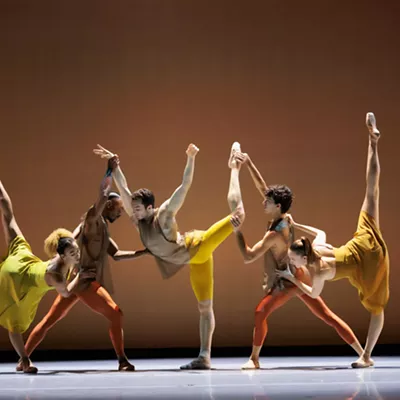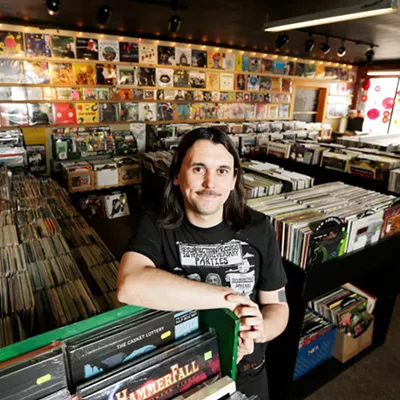The fear and suspicion toward Muslims that followed the terrorist attacks of September 11, 2001, are still with us today. Co-opted, broadened and more deeply institutionalized, yes, which might make them seem somehow less acute, but they continue to exist as elemental forces in America's sociopolitical climate.
Yussef El Guindi's Back of the Throat was written when those elemental forces were still quite raw. The play centers on a pair of government agents who drop in on a young man named Khaled, an American citizen, for an "informal" (their word) round of questioning.
"Casual," says one of them. "As casual as a visit like this can be."
But as the agents persist in their questioning, otherwise innocuous cultural differences create gaps where fear and suspicion can take root. The guttural k in the pronunciation of Khaled's name, which lends the play its title, or the exoticism of calligraphy become symbolic of an irreconcilable otherness. Civility fades. Tension escalates.
A new production of Back of the Throat opens this weekend at Stage Left.
"There is definitely tension in the show. I don't want to understate that," says director Heather McHenry-Kroetch. "But I guess there are different levels. You can't keep the same level of tension the entire time. There are definitely moments where it's more and where it's less. And, you know, there is some humor in that script."
She cites the delicate interplay of tension and humor as one of the play's many appealing "complexities." That, along with its time-hopping chronology, has the potential to make Back of the Throat more "thought-provoking and provocative" than other works, but also makes it harder to translate it from the script to the stage.
"That's the whole challenge with this show. There's some subtlety. It doesn't just spell it out for you," McHenry-Kroetch says, adding that the subtlety extends to the characterization.
"The men who we would say are the most brutal are — well ... they're not evil. They are written as real people who have likes and dislikes and senses of humor," she says.
Appearing in this production are Robert Thompson as Khaled; Jason Young and Patrick McHenry-Kroetch (agents Bartlett and Carl, respectively); Brooklyn Robinson (playing Shelly, Beth and Jean); and Chris Jensen (Asfoor).
Some of these roles might raise eyebrows, as neither Khaled nor Asfoor is played by an actor of Middle Eastern descent. This could, on the one hand, be seen as a form of cultural insensitivity that's at odds with the narrative thrust of the play. On the other hand, it could be viewed as, well, acting, which boils down to pretending to be someone else convincingly enough to cause the audience to suspend its disbelief.
McHenry-Kroetch says the casting choices in Back of the Throat were much more circumstantial: No one of the right ethnicity auditioned.
"Would I have liked someone of Middle Eastern descent to have auditioned? Yes," she says, but ultimately she felt as though Thompson and Jensen could do justice to the characters.
In the end, part of the show's aim is to evoke those intense emotions — the anger, the anxiety, the bewilderment — that became synonymous with September 11, not least for those who might not be old enough to remember them.
"While there might not be any forgetting of what happened, it might be that they didn't experience what happens when so many people are afraid all at once," says McHenry-Kroetch. "It's important to see that that has certain outcomes that might not even be the intention of the people who are acting on the fear." ♦
Back of the Throat • Oct. 20-Nov. 5 • Fri-Sat, 7:30 pm; Sun, 2 pm • $20 • Stage Left Theater • 108 W. Third • spokanestageleft.org • 838-9727


















